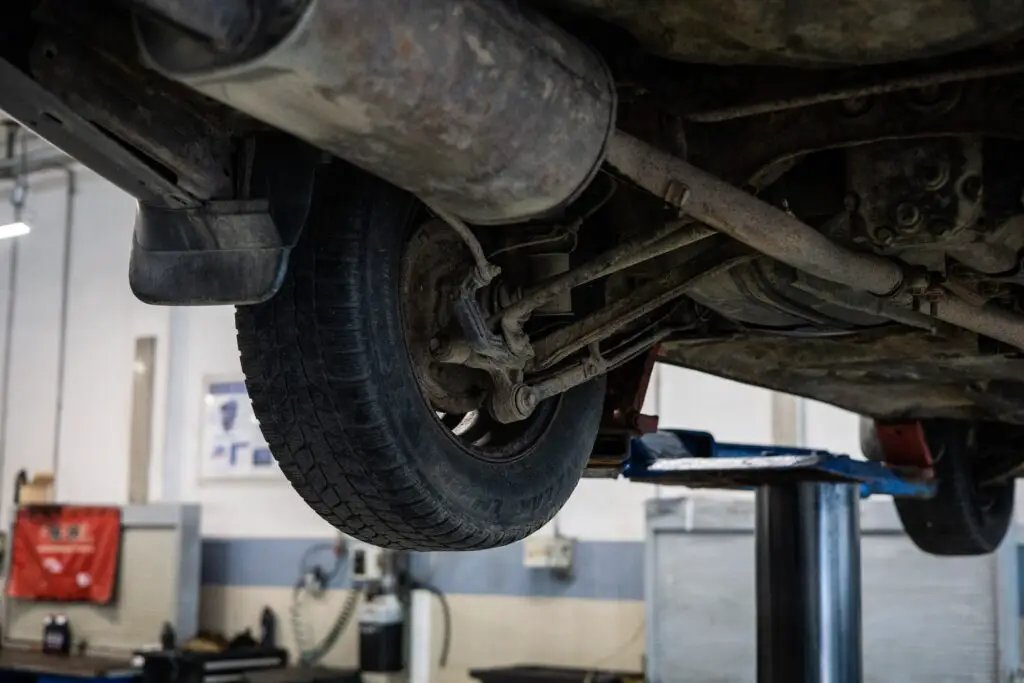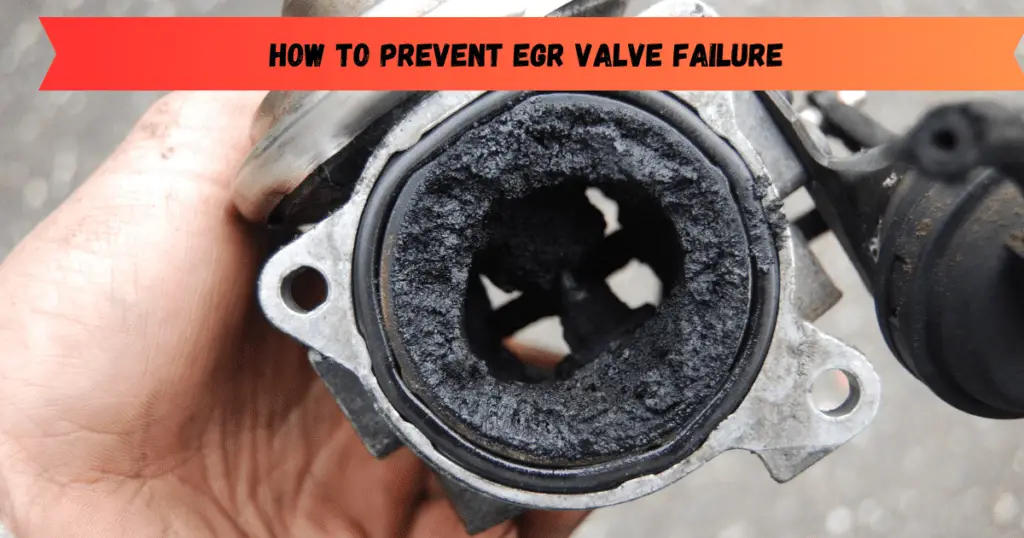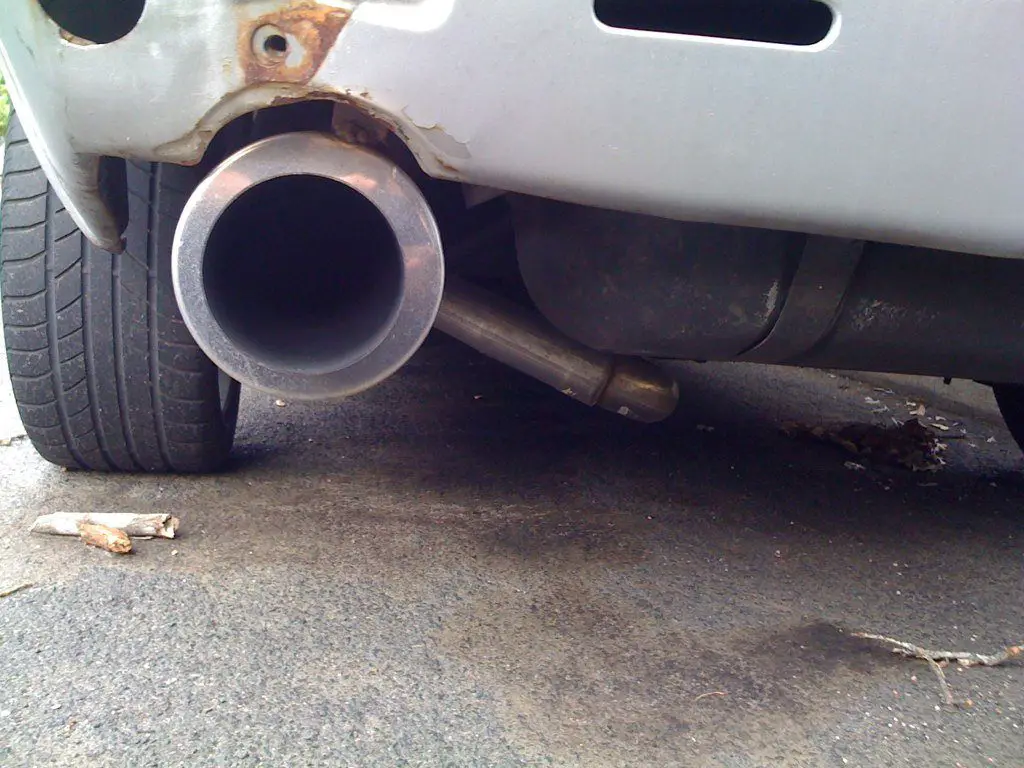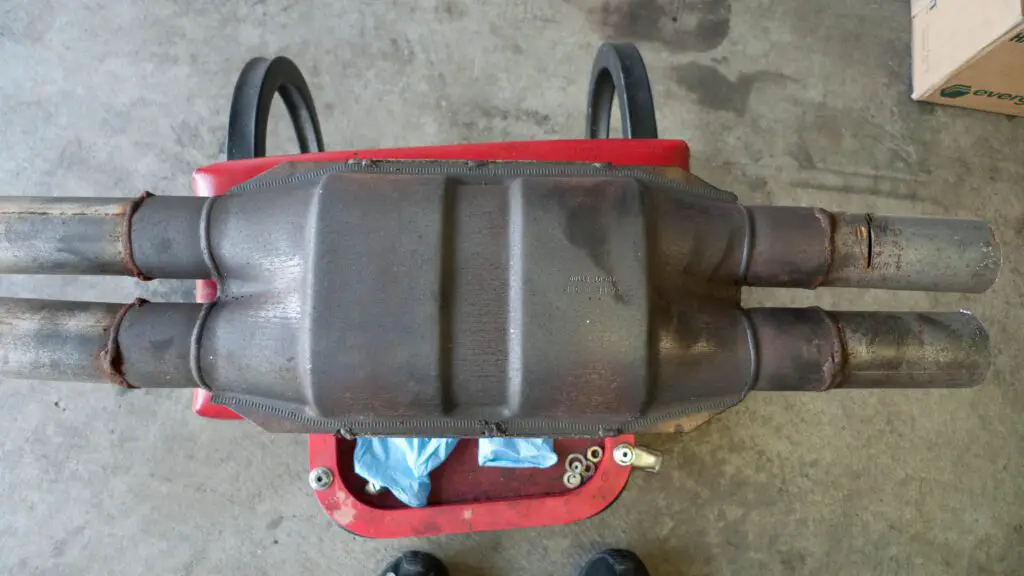A faulty oxygen sensor is one of the most common causes of check engine lights and performance issues in vehicles. But can it be severe enough to cause your car to completely shut off while driving? Let’s take a closer look at Will a Bad O2 Sensor Cause a Car to Shut Off?
What is an O2 Sensor and What Does it Do?
An O2 sensor, also called an oxygen sensor, is a small device installed in the exhaust system of your vehicle. Its job is to monitor the oxygen content of the exhaust gases leaving the engine.
There are usually two O2 sensors in a vehicle – one before the catalytic converter and one after. The sensor before the cat measures the oxygen content right as the exhaust leaves the engine, while the one after measures the oxygen content after the gases have flowed through the catalytic converter.
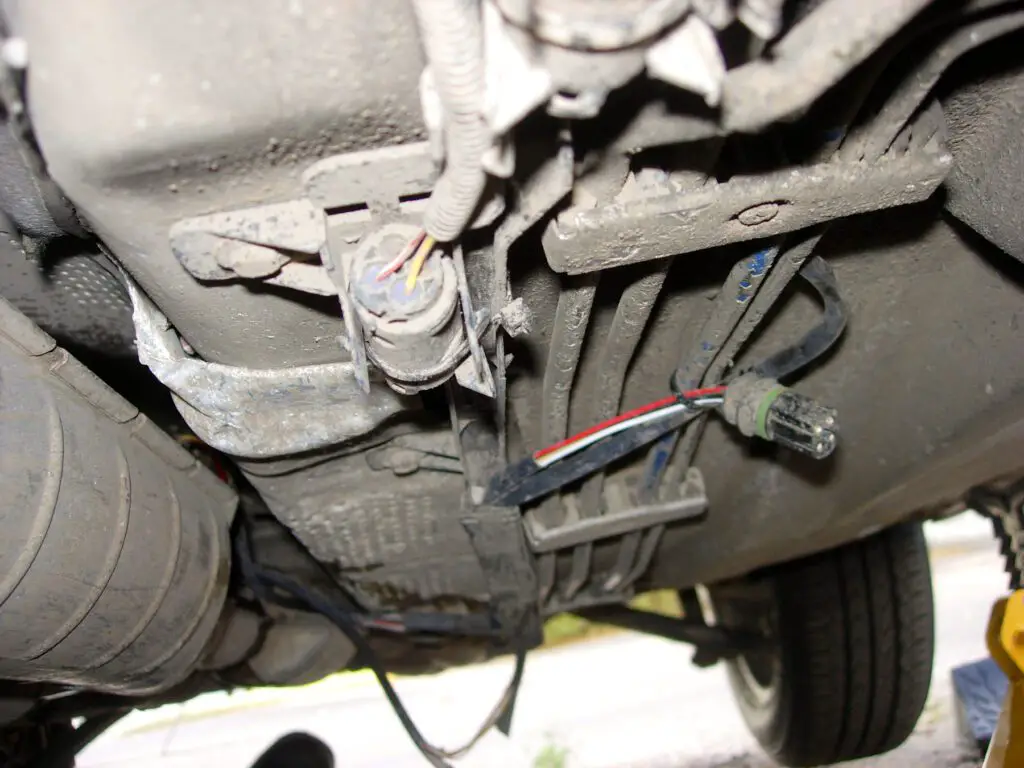
This oxygen content data is sent to the vehicle’s computer, also called the engine control unit (ECU). The ECU uses this data to adjust the air/fuel mixture that is injected into the engine. The ideal air/fuel ratio is around 14.7:1.
If the oxygen content is high, indicating a lean mixture, the ECU will command more fuel to be injected. If the oxygen reading is low, showing a rich mixture, the ECU will decrease the fuel flow. This constant adjustment ensures optimal combustion, power output, fuel efficiency, and emissions control.
What Causes an O2 Sensor to Fail?
Will a Bad O2 Sensor Cause a Car to Shut Off? O2 sensors are subjected to extreme conditions – high exhaust temperatures, vibration, moisture, road contaminants, and erosion. This eventually leads to sensor failure. Some common causes include:
- Age and mileage – O2 sensors gradually wear out over time and miles. Performance starts declining after 60,000-100,000 miles.
- Contamination – Built-up deposits from oil, fuel, coolant, or other contaminants interfere with the sensor’s function.
- Damage – Impacts from road debris can crack the sensor. Damage can also occur during removal for other repairs.
- Electrical issues – Corroded connections, broken wires, shorts, and opens will prevent sensor operation.
- Running lean – Prolonged oxygen-rich exhausts from lean fuel mixtures can damage the sensor over time.
- Engine misfires – Misfires dump unburned fuel into the exhaust, contaminating the sensor.
Symptoms of a Failing O2 Sensor
A failing O2 sensor will exhibit some or all of these symptoms:
- Illuminated check engine light – Error codes related to the oxygen sensors will be stored in the ECU and trigger the check engine light.
- Decreased fuel economy – Incorrect oxygen readings will cause a too-rich or too-lean air/fuel mixture, wasting gas.
- Rough idle – The engine may feel rough or unstable at idle as the ECU struggles to fine-tune the idle fuel trim.
- Hesitation and loss of power – An unoptimized air/fuel ratio results in weak combustion and reduced engine power.
- Hard starting – Starting issues can occur if the ECU cannot accurately set the initial air/fuel mixture.
- Backfiring – Lean mixtures combined with ignition timing issues may cause backfiring through the exhaust.
- Stalling – Severely lean or rich conditions induced by a bad O2 sensor can cause the engine to stall.
- Black smoke from exhaust – Rich fuel mixtures from a failing sensor can create a sooty black exhaust.
Can a Bad O2 Sensor Cause a Car to Shut Off While Driving?
So while a failing oxygen sensor can cause drivability issues, stalling, and engine shutdowns at idle, it’s unlikely to directly lead to a car randomly shutting off while driving down the road.
There are a few reasons for this:
- At higher RPMs and loads, other sensor inputs like the MAF, MAP, and throttle position sensor become more influential in determining fueling. The ECU relies less directly on the O2 sensor feedback.
- There are two sensors (one before and after the catalytic converter) providing redundancy in the event one fails. Both would have to malfunction to entirely lose oxygen monitoring.
- Total sensor failure tends to just set a trouble code and trigger the check engine light rather than cause abrupt engine shutdown. The ECU is programmed to default to a baseline safe air/fuel ratio.
That said, a severely malfunctioning O2 sensor can confuse the ECU enough that it delivers an overly lean or rich mixture that misfires and stalls the engine. It’s just not a typical failure mode during highway driving.
Will a Bad O2 Sensor Cause a Car to Shut Off? More commonly, the reduced performance from a bad O2 sensor can potentially mask an underlying issue that leads to the car shutting off. Problems like ignition, fuel delivery, or crank/cam sensor failure can all manifest as a stall, and may not throw a code until the O2 sensor is fixed.
What Does a Car Do When the Oxygen Sensor Is Bad?
When one or both O2 sensors start to fail, here are some of the most common effects on your vehicle’s performance and operation:
- Check engine light comes on – The ECU detects activity outside the normal parameters and sets an O2 sensor-related trouble code.
- Poor engine efficiency – Incorrect fuel trims result in incomplete combustion, wasted fuel, and less power.
- Hesitation and surging – The engine may surge and hesitate as the ECU struggles to find the right air/fuel mix.
- Increased emissions – More pollutants like NOx, CO, and hydrocarbons are produced without properly functioning O2 sensors.
- Lower MPG – Incorrect fueling and combustion reduces fuel economy over time.
- Rough idle – Idle smoothness suffers as the engine bobs up and down searching for the optimal idle mixture.
- Hard starting – Starting the engine becomes more difficult without accurate monitoring of the initial air/fuel ratio.
- Misfires – Lean or rich mixtures caused by a bad O2 sensor can lead to misfired cylinders.
Will a Bad O2 Sensor Cause a Car to Shut Off? So in summary, the engine will run poorly with reduced power, fuel economy, and emissions control. But it should not normally cause abrupt stalling and shutdowns, especially at highway speeds. The ECU is programmed to maintain basic engine operation even with bad sensor inputs.
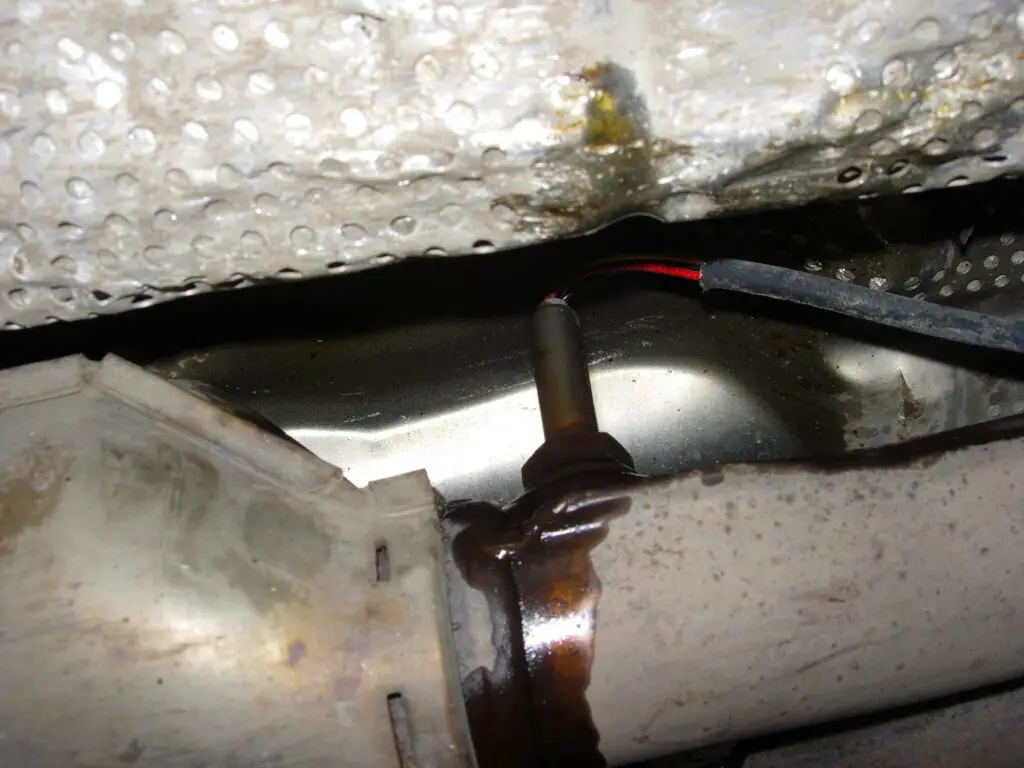

Will a Car Run Without O2 Sensors?
While it’s not advisable to operate your vehicle for extended periods without functioning O2 sensors, it is technically possible for it to run. Here’s what happens when the oxygen sensors are removed or disabled:
- The check engine light will illuminate and O2 sensor-related trouble codes will be set. However, the engine will not necessarily go into “limp home” mode.
- Fueling will be handled entirely by pre-programmed air/fuel maps and other sensor inputs like coolant temperature, throttle position, and engine load.
- Idle quality, power output, acceleration, and fuel efficiency will be negatively impacted due to the lack of closed-loop fuel trim control.
- Emissions output will increase significantly without the O2 sensors’ feedback on catalytic converter function and exhaust oxygen content.
- Prolonged operation without properly monitoring oxygen levels can lead to eventual catalytic converter damage and efficiency loss.
So in an emergency, you can drive a short distance to a repair shop with malfunctioning O2 sensors. However, extended driving poses the risks of poor performance, increased emissions, and potential catalytic converter damage. The O2 sensors should be repaired as soon as possible for the best engine operation.
Will O2 Sensors Cause Car Not to Start?
While it’s unusual, in some cases bad O2 sensors can lead to no-start conditions. Here are a few potential scenarios:
- Corroded or damaged wiring – If the sensor wiring is shorted, disconnected, or corroded, it can sometimes disable the ignition or fuel pump circuits as a safety precaution. This may prevent starting.
- Faulty sensor ground – Issues with sensor or ECU ground connections can potentially disable the ignition or fuel system and lead to a no-crank or no-start problem.
- Failed sensor heating circuit – The sensors have built-in heaters. If that open circuit isn’t detected, it may prevent fuel delivery or ignition system operation as a precaution.
- ECU failure – If an oxygen sensor electrically fails, it can damage the ECU inputs. This can disrupt critical ECU functionality and prevent fuel/ignition system operation needed for starting.
- Lean air/fuel mixture – In some cases, a bad O2 sensor may trick the ECU into running overly lean, causing a no-start until the flooding clears.
So while not the most common cause, it’s possible in some situations that severely damaged O2 sensors or wiring can introduce conditions that lead to failure to start. But generally, other issues like battery, ignition, fuel, or compression problems are vastly more likely culprits.
Can O2 Sensors Cause Loss of Power?
Absolutely – failing O2 sensors can cause power loss. Here’s why:
- Incorrect oxygen readings will lead to non-optimal air/fuel mixtures. Too rich or too lean will cause weak combustion and reduced power.
- Higher oxygen readings from a failing sensor may trick the ECU into pulling out timing. This reduces combustion pressures and engine output.
- Unstable fuel trims from a malfunctioning sensor can create partial cylinder misfires that impair power delivery.
- Lean misfires induced by a bad sensor can cause high exhaust temperatures that may trigger ECU-imposed power reductions.
- The ECU may intentionally limit power output to prevent sensor damage, catalytic converter overheating, or excessive emissions until repairs are made.
- In some cases, part throttle acceleration may worsen temporarily when O2 sensors are replaced and the ECU re-learns the optimum fuel trims.
Replacing faulty oxygen sensors and allowing the fuel trims to re-adjust can often restore lost engine power and performance. So if your engine seems down on power, O2 sensors should be among the first suspects.
Can O2 Sensors Cause Car Not to Accelerate?
Power loss, lack of acceleration, and throttle response is other common symptom of failing O2 sensors. Here are some of the ways bad sensors can create acceleration problems:
- Incorrect fuel mixtures result in weak combustion, reducing engine torque output.
- Lean misfires brought on by a faulty sensor limit cylinder output and impair acceleration.
- Hesitation or stumble on acceleration as the ECU hunts for the right fuel trims.
- The ECU intentionally limits acceleration due to sensor issues until repairs are completed.
- Contaminated sensors stuck at a high oxygen reading will trick the ECU into over-leaning the mixture, reducing power.
- Sensor degradation is often more noticeable under load, where accurate readings are critical.
- Surging or bucking during acceleration as the ECU oscillates between rich and lean.
- Relearning of fuel trims after O2 sensor replacement may cause temporary acceleration problems.
So acceleration problems, hesitation, lack of power, and stumbling can be caused by failing oxygen sensors. Replacing the bad sensor and allowing the ECU to adapt can typically restore proper acceleration and throttle response.
FAQ – Will a Bad O2 Sensor Cause a Car to Shut Off?
What sensor causes a car not to start?
Some of the most common sensor issues that can cause no-start conditions include:
- Camshaft position sensor – Fails to provide critical timing and position data for fuel/ignition.
- Crankshaft position sensor – Does not deliver vital crank timing signals needed to start.
- Mass air flow sensor – Prevents start-up fuel calculations if not providing airflow data.
- Oxygen sensor – Severely damaged sensors can sometimes disable ignition/fuel systems.
- Coolant temperature sensor – Provides false engine cold data that inhibits fuel delivery.
- Knock sensor – Detected failure during the previous drive can disable the spark to prevent damage.
Will a car start with no oxygen sensor?
In most cases, yes. The ECU will use preset fuel maps and data from other sensors at start-up. However, severely damaged oxygen sensors can sometimes cause wiring, grounding, or ECU issues that may prevent successful starting in some cases.
What does a bad O2 sensor cause a car to do?
Common symptoms of a bad O2 sensor include check engine light, poor fuel economy, rough idle, power loss, acceleration problems, misfires, and black smoke from the exhaust. But it rarely causes sudden stalling except in severe cases at idle.
Why is my car just cranking but not starting?
Some potential causes of cranking with no start include a dead battery, bad starter motor, faulty fuel pump or relay, clogged fuel filters, broken timing belt, bad crank/cam sensors, no spark from failed ignition components, immobilizer issues, and hydro-locked engine.
Why is my car not starting but I have power?
If you have lights and dashboard power but no crank when trying to start, causes can include a bad starter motor, faulty neutral safety switch, broken clutch interlock switch, bad ignition switch, immobilizer/security issues, damaged starter relay, or wiring.
Can a vehicle run without an O2 sensor?
While not recommended, a vehicle can technically run without oxygen sensors. The ECU will use preset fuel maps to maintain engine operation. However, performance, fuel economy, emissions, and catalytic converter health will be negatively impacted until the faulty sensors are replaced.
Conclusion – Will a Bad O2 Sensor Cause a Car to Shut Off?
While a severely malfunctioning oxygen sensor can cause stalling, hesitation, and no-starts at idle or low speeds, it is unlikely to directly cause a random shutdown at highway speeds. More often, O2 sensor issues simply illuminate the check engine light and progressively worsen power, acceleration, and fuel efficiency. Will a Bad O2 Sensor Cause a Car to Shut Off? Their failure only leads to abrupt stalling in extreme cases after extensive damage.
If your vehicle is shutting off randomly while driving, it is best to look at traction control, crank/cam sensors, fuel pump, and filter, spark plugs, and ignition components as more likely culprits. Replace your oxygen sensors promptly to restore performance and prevent further issues, but don’t assume they are the direct root cause of sudden high-speed stalls.

